If you’re like most gardeners, you’ve probably had at least one batch of lettuce that was bitter. This can be frustrating, especially if you’re not sure why it happened or how to prevent it from happening again. In this article, we will answer some common questions about why garden lettuce is bitter. We’ll also provide some tips on how to avoid bitterness and get the most out of your homegrown lettuce!
Is It Safe to Eat Bitter Lettuce?
The short answer is yes, it is safe to eat bitter lettuce. While the bitterness may not be pleasant, it is not harmful to your health. In fact, some research has shown that bitter compounds in vegetables can actually have health benefits!
So why does bitterness happen in the first place? It’s usually caused by one of two things: either the plant was exposed to too much stress during its growth, or the weather was too hot when the plant was maturing. Stress can come from a number of sources, including drought, nutrient deficiencies, pests, and even diseases. Heat stress is often to blame for bitterness in lettuce that was grown during the summer months.
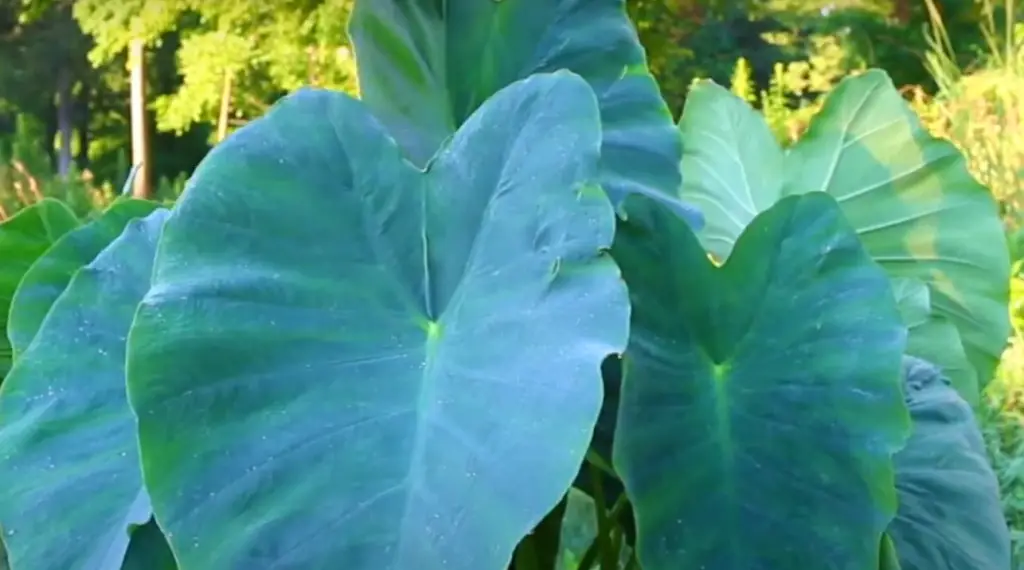
Fortunately, there are a few things you can do to avoid bitterness in your lettuce. First, make sure to water your plants regularly and evenly. This will help prevent stress from drought conditions. Second, be sure to fertilize your plants regularly with a balanced fertilizer. This will help prevent nutrient deficiencies that can lead to bitterness. Finally, try to avoid growing lettuce during the hottest months of the year. If you must grow during these months, choose a heat-resistant variety of lettuce or provide some form of shade for your plants.[5]
Preventing Bitter Lettuce
It is possible to prevent bitter lettuce by taking some simple steps. First, start with high-quality seeds or transplants from a reputable source. Make sure to plant them in well-draining soil that is rich in organic matter. Once the plants are established, water them deeply and evenly, keeping the leaves dry to prevent fungal diseases. Fertilize regularly with a balanced fertilizer and harvest your lettuce when it is young and tender for the best flavor.[4]
Common Causes of Bitter Lettuce
Environmental Conditions
Lettuce plants can experience stress from a variety of environmental conditions that cause the leaves to become bitter. For example, lettuce that is planted in soil that is too dry or has poor drainage may be more likely to turn bitter. Additionally, lettuce that is exposed to high temperatures (over 85 degrees Fahrenheit) for extended periods of time may also become bitter.
Other common causes of bitterness in lettuce include nutrient deficiencies, pests, and disease. Lettuce plants that do not receive enough nitrogen, potassium, or magnesium are often more likely to produce bitter-tasting leaves. Additionally, aphids and other pests can damage the plant and make the leaves taste bitter. Finally, diseases like downy mildew can also cause the leaves to turn bitter.[2]
Not Enough Nutrients
One of the most common reasons why garden lettuce is bitter is due to a lack of nutrients. The soil may not have enough nitrogen, potassium, or phosphorus, which are all essential for healthy plant growth. If the soil isn’t providing enough of these nutrients, the plants will absorb them from the air, resulting in a bitter taste.[2]
Aster Yellows
Aster yellows is a plant disease caused by the aster yellow phytoplasma. This phytoplasma is transmitted by leafhoppers and other insects that feed on infected plants.
Infected lettuce may be bitter to taste.
To control aster yellows, remove and destroy infected plants. Avoid planting lettuce in areas where the disease is known to occur. Use insecticides to control leafhoppers and other insect vectors.
Heat
If you’re growing lettuce in warm weather, it can make the leaves taste bitter.
But if the temperature gets much above 80 degrees, the plant will start to bolt, or produce flowers and seeds instead of leaves. And when that happens, the leaves will definitely be bitter.To avoid this, provide some shade for your lettuce plants during the hottest part of the day. You can do this by putting up awning or covering them with light-colored fabric like cheesecloth.
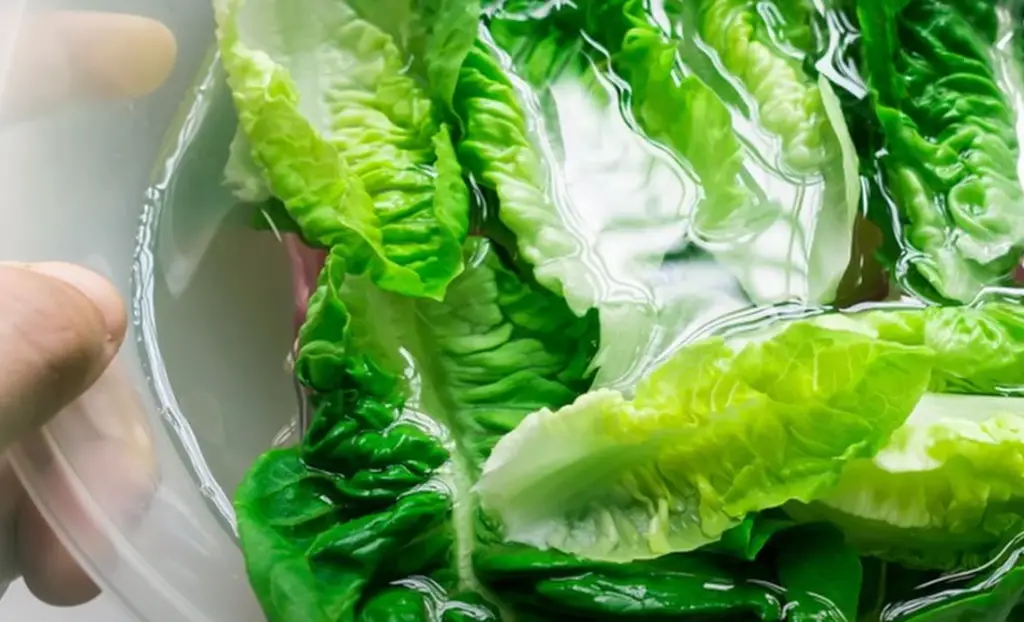
Another way to keep your lettuce from getting too hot is to water it in the morning so the leaves have time to dry off before nightfall. If the leaves stay wet overnight, they’re more likely to develop fungal diseases.
Finally, make sure you’re planting heat-resistant varieties of lettuce like Simpson Elite or Nevada. These will do better in warm weather than other types of lettuce.[1]
Bolting
Bolting is when a plant flowers and sets seed too early. Lettuce plants bolt in warm weather when they experience long days and short nights. The lettuce plant produces a flower stalk that grows tall and produces seeds. When this happens, the leaves of the plant become tough and bitter.
There are a few things you can do to prevent bolting:
- Plant lettuce in cool weather, either in spring or fall.
- Use a shorter day length variety of lettuce. These varieties are known as “day-neutral” or “long-day” lettuces.
- Provide some shade for your lettuce plants during the hottest part of the day.
- Water regularly so that the soil stays moist but not soggy.
If your lettuce has already bolted, you can still eat the leaves if you remove the tough center vein. The leaves will be smaller, but they will still be edible. You can also try to blanch the leaves in boiling water for a few seconds to make them more tender. Finally, you can chop up the leaves and use them in salads or other recipes that call for cooked greens.[3]
Lack of water
It’s important to water your lettuce regularly, especially during hot weather.
Make sure to water your lettuce deeply, about an inch per week. If you live in an area with a lot of humidity, you may need to water more frequently.Mulching can also help retain moisture in the soil and prevent bitterness. Add a layer of organic material like straw or hay around your plants to help keep the ground moist. You can also use black plastic mulch, which will heat up the soil and discourage weeds while conserving moisture.[1]
Poor soil
One of the reasons why your garden lettuce might be bitter is because of poor soil drainage.
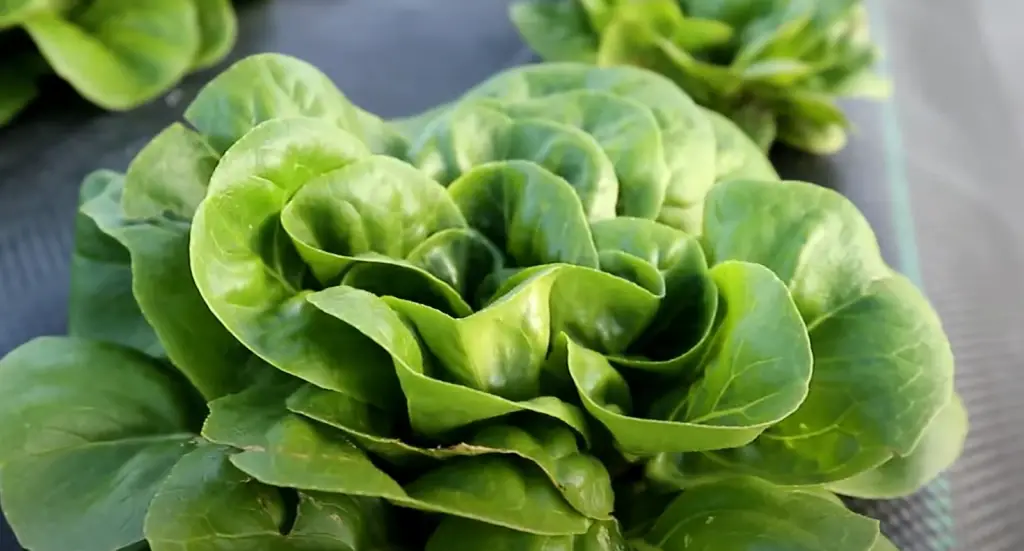
When water can’t drain properly from the roots, it will cause the plant to be stressed and produce bitter-tasting leaves. To improve drainage, make sure to add organic matter to your soil such as compost or perlite. You can also create raised beds for your plants so that water will flow away from the roots.[3]
What Can I Do To Stop It?
Harvest Early In The Morning
The first step is to harvest your lettuce early in the morning, before the sun has a chance to heat up the leaves. This will help preserve the delicate flavor of the lettuce.
This will also help keep the leaves cool and prevent them from getting bitter.[3]
Harvest Younger Leaves
If your lettuce is starting to bolt, or send up a flower stalk, it will become more bitter. By harvesting the younger leaves, you can get ahead of this process and enjoy sweeter greens.
Another way to make sure your lettuce isn’t too bitter is to plant varieties that are bred to be less so. Some lettuces, like arugula, are naturally quite bitter. If you want a milder flavor, look for mesclun mixes that contain a variety of lettuces with different levels of bitterness. And remember: even within a single type of lettuce, there can be variation in how bitter the leaves taste.[3]
Provide Shade
If you live in an area with a lot of sun, your lettuce may be getting too much sun. Lettuce is a cool weather crop and does best in the spring and fall. In the heat of summer, it will bolt to seed and become bitter. To prevent this, provide some shade for your lettuce plants. You can do this by planting taller crops next to them or using a shading cloth.
Water Often And Mulch
Watering your lettuce regularly is key to keeping it from getting bitter. Try to water your lettuce at least once a day, and more if it’s particularly hot or dry outside. Mulching can also help keep the soil moist and prevent evaporation.
Fertilize
If you want to know how to make your garden lettuce less bitter, one of the best things you can do is fertilize it. Lettuce is a heavy feeder and benefits from being fertilized regularly. A good fertilizer for lettuce is one that is high in nitrogen. Nitrogen helps plants grow quickly and produce lots of leaves.
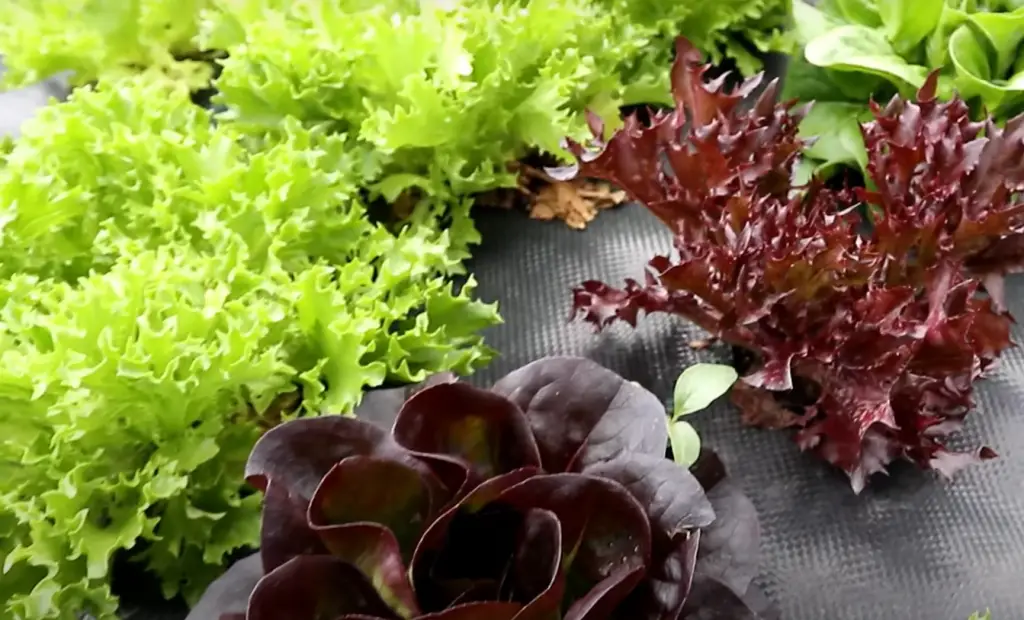
You can use a commercial fertilizer or make your own compost. Compost is rich in nutrients and will help improve the quality of your soil.[3]
Grow The Right Varieties
One of the main reasons why garden lettuce can be bitter is due to the variety that’s being grown. Some lettuce varieties are more prone to bitterness than others. To avoid this, make sure to do your research and choose a variety that is known for being sweet and crisp.
Some of the best varieties of lettuce for sweetness include:
- Butter Crunch
- Crisphead (Iceberg)
- Romaine
- Green leaf
- Oakleaf
Types of Lettuce
There are several types of lettuce that can be found in grocery stores or grown in gardens. Each type has a unique flavor, texture, and appearance. The most common types of lettuce include: iceberg, romaine, butterhead, leaf, and mesclun.[5]
Iceberg lettuce is the most popular type of lettuce in the United States. It has a crisp texture and a mild flavor. Iceberg lettuce is often used in salads and sandwiches.
Romaine lettuce is a type of lettuce that has a crunchy texture and a slightly bitter flavor. Romaine lettuce is often used in Caesar salads and as a garnish for soups and other dishes.
Butterhead lettuces are named for their soft, buttery texture. These lettuces have a mild flavor and are often used in salads. The two most popular types of butterhead lettuce are Boston and Bibb lettuce.
Leaf lettuce is the most diverse type of lettuce. They can be either tender or crisp, and their flavors range from sweet to bitter. Leaf lettuces are often used in salads, but they can also be used as wraps or as a garnish for soups and other dishes.
Mesclun is a mix of baby greens that includes various types of leaf lettuce, along with other greens such as arugula, endive, and spinach. Mesclun mixes vary in flavor depending on the specific greens that are included. Mesclun is often used in salads, but it can also be used as a garnish for soups and other dishes.
What to Do With Bolted Lettuce
If your lettuce is already bitter, there’s not much you can do to reverse the process. However, you can still use it in recipes that call for cooked greens. Bolted lettuce is also good chopped up and added to soups or stews.
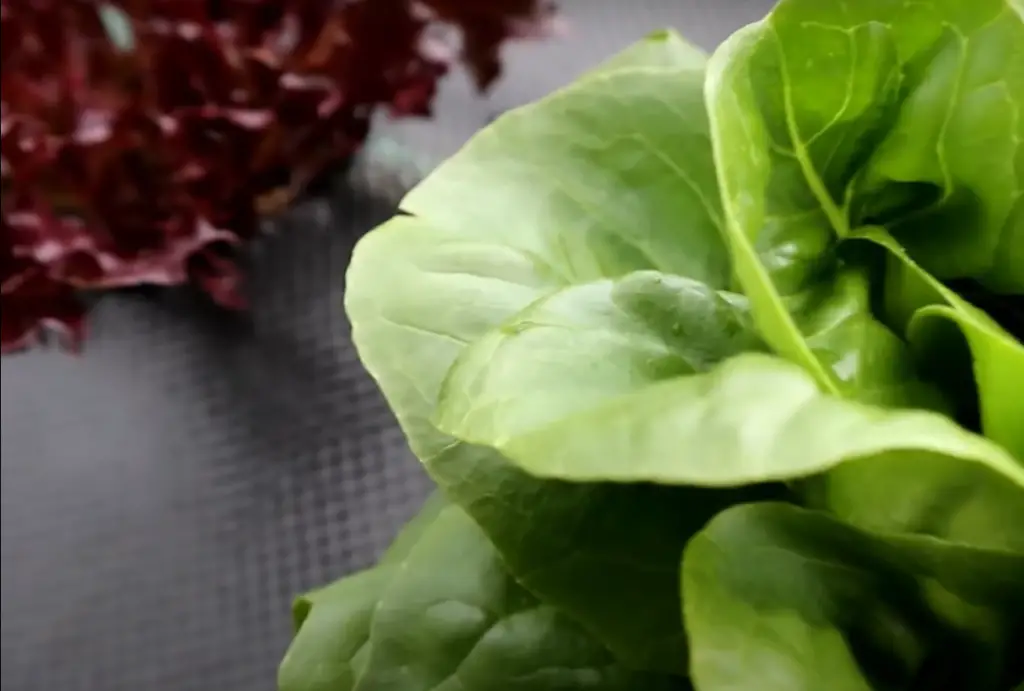
If you have lettuce that is starting to bolt but isn’t quite there yet, you may be able to salvage it by cutting off the flowering stem. This will stop the plant from putting all its energy into producing seeds, and hopefully the remaining leaves will be edible.
Of course, if you’re growing lettuce for its bitterness (such as with some varieties of endive), then let it go ahead and bolt![4]
FAQ
What kind of lettuce is bitter?
All types of lettuce can become bitter, but the most common type of lettuce that becomes bitter is iceberg lettuce. The main reason iceberg lettuce becomes bitter is because it’s a very dense type of lettuce and doesn’t have a lot of water content.
Other types of lettuce that can become bitter are Romaine, Butterhead, and Leaf lettuces. The main reasons these lettuces become bitter is because they’re not as dense as iceberg lettuce and they have more water content.
What temperature does lettuce turn bitter?
Lettuce can turn bitter when it gets too hot. The ideal temperature for lettuce is between 60 and 70 degrees Fahrenheit. If the temperature gets too high, the plant will start to bolt, or produce flowers and seeds. This process causes the leaves to become tough and bitter.
You can try to protect your plants from the heat by shading them with a lightweight cloth or umbrella. Make sure that the cloth does not touch the leaves, as this could cause them to scorch. You should also water your plants more frequently if it is hot outside, as they will lose moisture faster in these conditions.
Why is bolted lettuce bitter?
The answer to this question is a bit more complicated than a simple yes or no. To understand why your lettuce might be bitter, you first need to know a little bit about the different types of lettuce and their growth cycles.
There are four main types of lettuce: butterhead, crisphead, leaf, and romaine. Each type has its own unique flavor profile and texture, but they all share one common trait: they bolt when the weather gets warm.
Why are my garden vegetables bitter?
There are a few reasons why your garden vegetables might be bitter. Let’s explore some of the most common causes below.
One reason why your lettuce might be bitter is the type of lettuce you’re growing. Some types of lettuce, like endives and radicchios, are naturally more bitter than others. If you’re not a fan of bitter flavors, you might want to stick to growing lettuces that are known for being milder in taste, like iceberg or butterhead varieties.
Another reason why your garden produce might be coming out tasting bitter is due to the soil it’s grown in. Soil that is high in alkalinity can cause bitterness in fruits and vegetables. This is because plants absorb minerals from the soil as they grow, and if there’s a high concentration of certain minerals in the soil (like magnesium, calcium, or iron), it can affect the taste of the produce. One way to lower the alkalinity of your soil is to add organic matter, like compost or manure.
Finally, weather conditions can also play a role in making fruits and vegetables more bitter. For example, hot temperatures can cause bitterness in leafy greens like lettuce and kale. If you live in an area with particularly hot summers, you might want to try growing heat-resistant varieties of lettuce that are less likely to turn bitter when the temperature rises.
How do you sweeten bitter greens?
There are a few ways that you can sweeten bitter greens. One way is to add a sweeter fruit or vegetable to the mix. Another way is to dress the greens with a sweet vinaigrette or dressing. You can also cook the greens, which will help to mellow out their flavor. Finally, if you still find the greens to be too bitter, you can try adding a bit of honey or sugar to them.
With any of these methods, it’s important to start with just a little bit of sweetness and then taste as you go. It’s easy to make something too sweet, but it’s much harder to make it more bitter!
How to remove bitter taste from lettuce?
There are a few steps you can take to help reduce the bitter taste from your garden lettuce. The first step is to avoid harvesting the lettuce too late, as this will often result in more bitterness. Additionally, try not to water the lettuce too heavily or too close to harvest time; instead, aim for regular but light amounts of irrigation throughout the growing season. Another method that may be useful is soaking harvested leaves in ice-cold water before consuming them, as this can help decrease their bitterness. Finally, you might consider selecting specific varieties of lettuce known for having less bitterness or breeding new varieties with lower levels of bitterness if desired.
Why is my iceberg lettuce bitter?
There are several possible reasons why your lettuce might taste bitter.
One of the most common causes is a lack of nutrients in the soil. Lettuce needs nitrogen, sulfur, phosphorus, and potassium to grow optimally. If your garden’s soil doesn’t have enough of any one or more of these minerals, it can result in an unbalanced nutrient blend that will make your lettuce taste bitter.
Excess heat may also contribute to bitterness in lettuce. When temperatures get too high (over 80 degrees Fahrenheit), the plant’s photosynthesis process slows down and produces less glucose for energy, resulting in a bitter flavor. This is especially true if the plant doesn’t have adequate water and humidity to help cool itself.
The plant may also be stressed from a lack of water. When the soil is too dry, the roots can’t absorb enough moisture and the lettuce can become dehydrated and taste bitter.
Finally, it’s possible that your lettuce has simply been in the ground for too long. Lettuce grows quickly and can start to bolt (flower) when it gets too mature. As lettuces age and prepare to flower, they produce a bitter-tasting compound known as sesquiterpenoid lactone glycoside.
What to do with bitter lettuce?
Bitter tasting lettuce can be an unpleasant surprise if you don’t expect it. It’s common for gardeners to experience bitter lettuce, especially when harvesting older leaves. There are a few steps we can take to reduce bitterness in our garden lettuce.
First and foremost, it is important that the plant is receiving ample sunlight and water. Lettuce needs 6-8 hours of full sun each day and soil should remain moist but not soggy. If your plants appear yellow or wilted, they may need more water or fertilizer as soon as possible.
It’s also important to harvest the leaves before temperatures become too hot or cold. When temperatures drop below 45°F (7°C) or rise above 80°F (26°C), bitterness becomes more intense. Harvest your lettuce as soon as it matures and avoid leaving the leaves too long on the plant in extreme temperatures.
Finally, there are several varieties of lettuce that have a naturally milder flavor. Consider planting butterhead, romaine, or loose leaf lettuces if you are looking for a less bitter taste. If your garden lettuce is already bitter, blanching can be used to reduce its strong flavor. Simply submerge the leaves in boiling water for one minute before eating.
Is bitter lettuce toxic?
No, bitter lettuce is not toxic and can still be consumed. However, some people may find its flavor unpalatable. If this is the case, you can try blanching or adding a sweetener such as sugar to counteract the bitterness.
Garden lettuce can become quite bitter when left in extreme temperatures or over-watered. Fortunately, there are steps we can take to reduce the bitterness of our lettuce such as harvesting quickly and selecting milder varieties. Blanching can also be used to further reduce bitterness if desired. Ultimately, it’s important to stay mindful of our plants needs in order for them to remain healthy and tasty!
How to fix bitter romaine lettuce?
There are a few things that may cause the romaine lettuce in your garden to be bitter. The most common causes of bitterness in garden lettuce include: too much fertilizer, insect damage, prolonged hot weather, and over-watering.
The first step to fixing bitter garden lettuce is to determine what is causing it. If the plants have been fertilized recently, consider reducing the amount used. Some insects can also cause bitterness by feeding on the leaves; if this is suspected, check for signs of infestation and take corrective action as necessary. Hot weather can also make lettuce taste bitter; if possible move the plants to an area with more shade or better air circulation. Finally, check whether there has been too much water given; if there is standing water around the plants, this can contribute to bitterness as well.
Why is my leaf lettuce bitter?
There are a few possible reasons why your garden lettuce may be bitter.
First of all, it could be due to age. Lettuce grows quickly in warm weather and can become overly mature and bitter-tasting if left in the ground for too long. To prevent this, harvest your lettuce before it has a chance to reach its maximum size.
It could also be caused by nutrient deficiencies or problems with soil pH. Iron deficiency is especially common in lettuce and can cause it to taste bitter. Test the soil’s pH levels to make sure they are within the proper range (6-7) for growing lettuce and add any necessary nutrients or amendments to ensure that your plants get what they need to grow healthily.
Heat can also be a factor in bitter-tasting lettuce. If the temperature during the day is too hot, it can cause lettuce plants to become stressed and produce leaves that are more bitter than normal. Make sure your lettuce has plenty of shade and water to help keep it cool and avoid bitterness.
Finally, some varieties of lettuce are naturally more bitter than others. If you find that one variety of lettuce tastes especially bitter no matter what precautions you take, try planting a different type instead. You’re bound to find one that suits your taste buds better!
Is bitter lettuce good for you?
The answer is a resounding yes! Bitter lettuce is jam-packed with antioxidants and other beneficial compounds that can help boost your overall health. In addition to its numerous health benefits, bitter lettuce also has a strong flavor that can add depth to many dishes.
However, not all lettuce should be consumed when it’s overly bitter. If the bitterness of your garden lettuce takes over the taste of your salad or dish, there are simple ways to reduce this undesirable flavor without sacrificing any nutritive value.
Is wild bitter lettuce edible?
The short answer is, yes. While neither wild nor cultivated lettuce are meant to be eaten raw due to their bitterness, cooked or steamed in a variety of ways they can make for a delicious dish. The bitterness of the leaves comes from natural compounds called glucosinolates, which give the plant its characteristic flavor and aroma. In addition, some varieties of wild lettuces may contain toxic compounds like alkaloids, saponins, and oxalic acid that should be avoided.
When preparing wild lettuce for cooking it is important to remove any discolored or wilting leaves as well as any seed pods or flowers that could add additional bitter flavors. Additionally, soaking the lettuce in cold water for 10-15 minutes before cooking can help reduce some of the bitter compounds.
Useful Video: Why Is My Lettuce Bitter & Is Cardboard Bad For The Compost Pile Q&A
Conclusion
If you find your garden lettuce is bitter, there are a few things you can do to try and improve the flavor. First, check the type of lettuce you are growing. Some varieties, like iceberg, are naturally more bland than others. If possible, try planting a more flavorful variety. Secondly, make sure your plants are getting enough water. Lettuce that is too dry will often taste bitter. Finally, add some organic matter to your soil to help improve its drainage and fertility. With a little care and attention, you can enjoy delicious, homegrown lettuce all summer long!
Do you have any tips for preventing bitter lettuce? Let us know in the comments below!
Happy gardening!
References:
- https://www.gardeningknowhow.com/edible/vegetables/lettuce/bitter-lettuce.htm#
- https://gardenerspath.com/plants/vegetables/bitter-lettuce/
- https://www.homestead-acres.com/bitter-lettuce/
- https://www.frugalandthriving.com.au/what-to-do-with-lettuce-that-has-gone-bitter/
- https://homeguides.sfgate.com/houseplants-repel-mosquitoes-cockroaches-pests-13771627.html





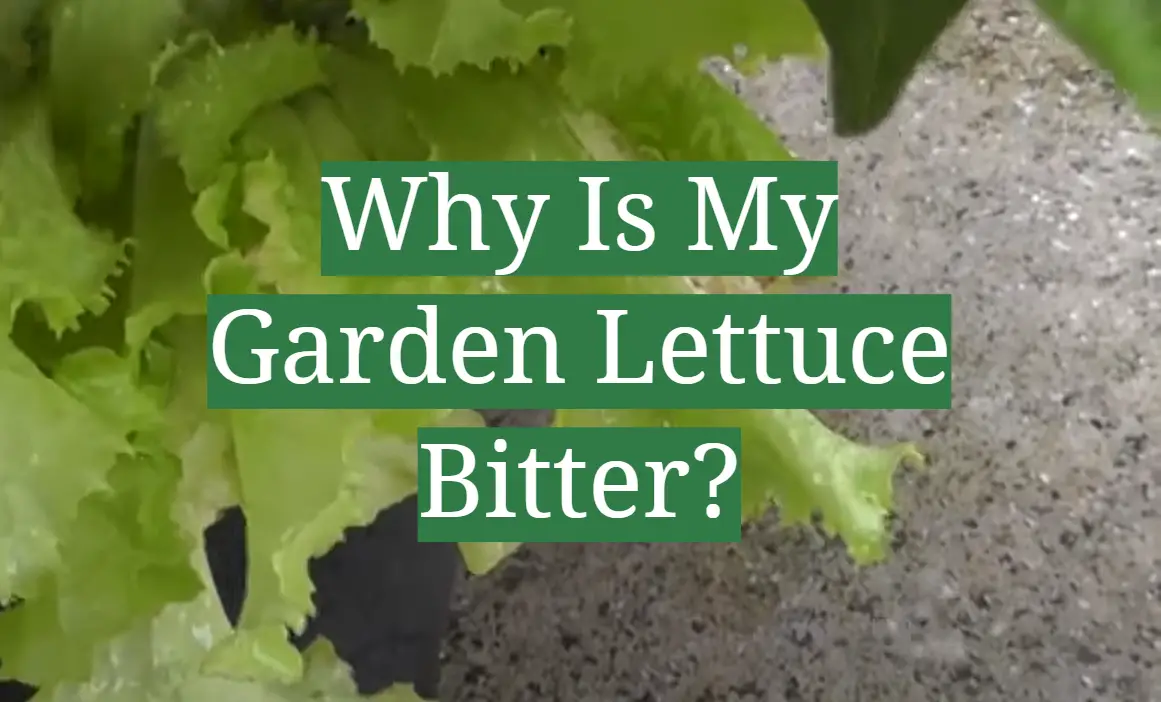

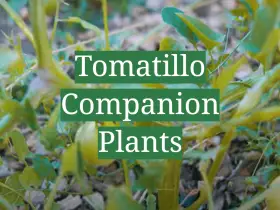


Leave a Reply
View Comments